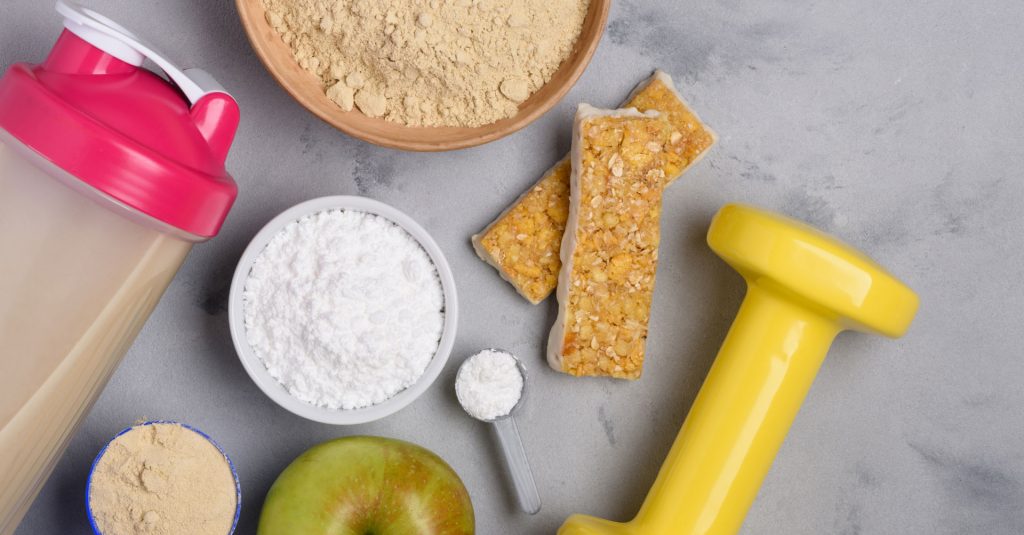Whether or not you’re training for an upcoming marathon event, eating the right things is a vital part of running. When you eat the right foods, you strengthen your immune system, keep your muscles healthy, make your body recover, and increase your energy. Food intake must be synchronized with your running schedule. Having a good meal a few hours before you run ensures that your body has time to digest the nutrients it needs for optimal performance.
After a training session, the direct effect of eating is to optimize recovery, which makes it possible to continue to train regularly and avoid injury. Your muscles need more fuel as your mileage increases since you’ll run for a more extended period of time. If you’ll lack energy for the long run, you won’t be able to perform well. Moreover, your immune system can be compromised if your body isn’t properly fueled.
Other than checking out supplements, such as those by NSP Nutrition, here are ways to fuel your running performance:
1. Incorporate Energy Gels
Fuel gels are a popular choice for on-the-go athletes because of their single-serving packets. Similar to sports drinks, gels provide sustained energy through sugars and maltodextrins. Energy gels offer fast-acting carbohydrates in a super concentrated form. When you’re on to your hard run, gelatin form requires no chewing. It’s recommended to choose a gel that has 25 to 30 grams of carbohydrates per packet. You can opt to derive these gels from sources like honey, maltodextrin, and brown rice syrup.
The caffeine content of the product must be checked. A British study found that caffeine stimulates the central nervous system and enhances performance by facilitating the body’s ability to use energy more efficiently. But, if you aren’t familiar with it, caffeine is likely to make you jittery. If you use a gel package, it can become sticky, and you’ll need to drink water each time you consume it. To find the gel that works best for you, try several different kinds during training.
2. Stay Hydrated With Water
Another key to your success is to stay hydrated while you run. You need to maintain such practice whether you’re just exercising or training for a running event. Your hydration plan should prevent dehydration, fatigue, muscle cramps, and dehydration from sweat.
If you’re running for an extended period of time, you should determine how much fluid you actually need. To calculate your fluid requirements scientifically, weigh yourself before and after you run.
To make sure you’re drinking enough fluid, drink three or four sips every 15 to 20 minutes. You don’t need more water if you’re getting your calories from fuel. Choosing a sports drink that provides both fluids and carbohydrates is a wise choice.
3. Consume Natural Foods
You can always come back strong after overcoming running injuries in the past. With careful planning and consuming natural foods, you’ll be ready in no time! Many performance benefits come with engineered sports products that you can find in your own fridge at home. Running long distances requires a certain amount of carbs, which can be found in some natural foods. If you’re searching for healthy snacks, pick dried fruits, honey, and figs.
As fructose can cause stomach upset, fruits should be consumed in moderation, and partner it with drinking lots of water to stay hydrated. You can add a quarter teaspoon of salt per quart of water if the food is deficient in sodium. It’s a good idea to read a food label or visit a website that can determine how much you should consume while running.

4. Drink Up Sports Drinks
Drinking sports drinks boosts energy and keeps you hydrated while mixing water and carbohydrates. A typical person needs 30 to 60 grams of carbohydrate per hour of exercise to perform their best. In addition to sugar and glucose, sports drinks also contain water and sodium to provide hydration. Sodium assists the body in retaining fluids by replacing those lost through sweat.
You lose sodium when you sweat, so choose a sports drink with at least 110 mg sodium per 8 ounces. A sports drink with an increased potassium and sodium content provides the same amount of carbs as a regular one. It may be worth trying one of these higher-sodium products if you exercise for more than three hours on a hot and humid day.
You can also drink sports drinks containing protein. In a study conducted by the University of Texas researchers, subjects performed better on an endurance test when consuming a sports drink with added protein than when they finished a carbohydrate-only drink.
When you make these drinks from powder, be careful not to overconcentrate the mix because it will upset your stomach. Drink these sports drinks only for exercise since they’re sugary drinks with lesser nutritional contents. A minimum of 30 grams of carbohydrates should be consumed every hour, which would translate to two eight-ounce servings of sports drink.
Conclusion
It’s time to test your ideas and customise your nutrition plan to have a nutrition strategy. If you’re considering trying new foods before your big race, you should start now to discover which foods and ways are effective as your fuel for running. Ideally, you should have your plan in place at least two weeks before the running event, if you’ve joined any.


